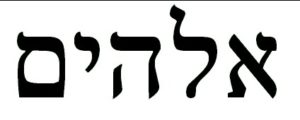I went to church on a Saturday morning to meet a group of folks who wanted me to offer communion to their group. The first person I saw was one of the leaders. She drove right up next to me in the parking lot, rolled down her window, and said, “The dog ate the communion bread.” I thought she was joking, but she looked at me with dead seriousness and said, “No, really. How can a miniature dachshund need that much communion bread?”
What a powerful analogy for what has happened to so many people in this world. So many people I know are such good people, such intelligent people, but somewhere along the way, something happened. Either they got hurt by the church, or they found such hypocrisy among Christians that they couldn’t see the point of it. It is as if the dog has eaten their communion bread. Its as if Satan, or life, or fallen human beings – the world has stolen their right to be in communion with God. And the terrible result for too many of us is that we no longer trust God. We are suspicious that maybe he does not have our best interests at heart. We secretly wonder if, given an inch, God would try to make us walk a mile we don’t want to walk.
After all, if God is so good, why is life so hard?
This question baits the enemy of our souls. If he can get us to suspect God’s motives, he can yank us right down into misery and anger. All the anger, fear and loneliness we feel has a single root cause. It grows out of a basic distrust in God — in his power to provide, in his sovereignty, in his desire to do for us.
The antidote is in the names of God. We discover in his names the character of the One worthy of our trust. Yahweh: “I Am.” Emmanuel: “God With Us.”
Figuring out who God is is fundamental to how we relate to him. Thomas Merton says: “Whether you understand it or not, God loves you, is present in you, lives in you, dwells in you, calls you, saves you and offers you an understanding and compassion which are like nothing you have ever found in a book or heard in a sermon.”
Jeremiah Smith says this: There is nothing more important, no higher priority in your life, than for you to figure out who God is. It affects everything else in your life. You choose how to approach situations in your life based on your understanding of who God is and what He’s like.
In the quest to know him, where do we begin? I believe we begin where the Bible does, with the name that assures us God is enough. Whatever our sin, brokenness, problems, whatever else in our lives vies for our attention, God is enough.
Elohim. Enough.








